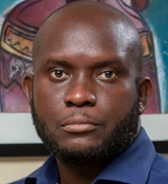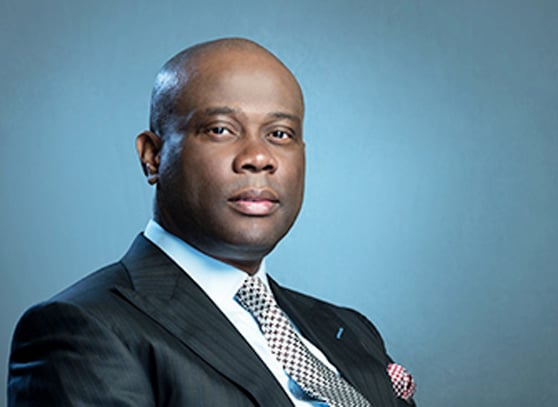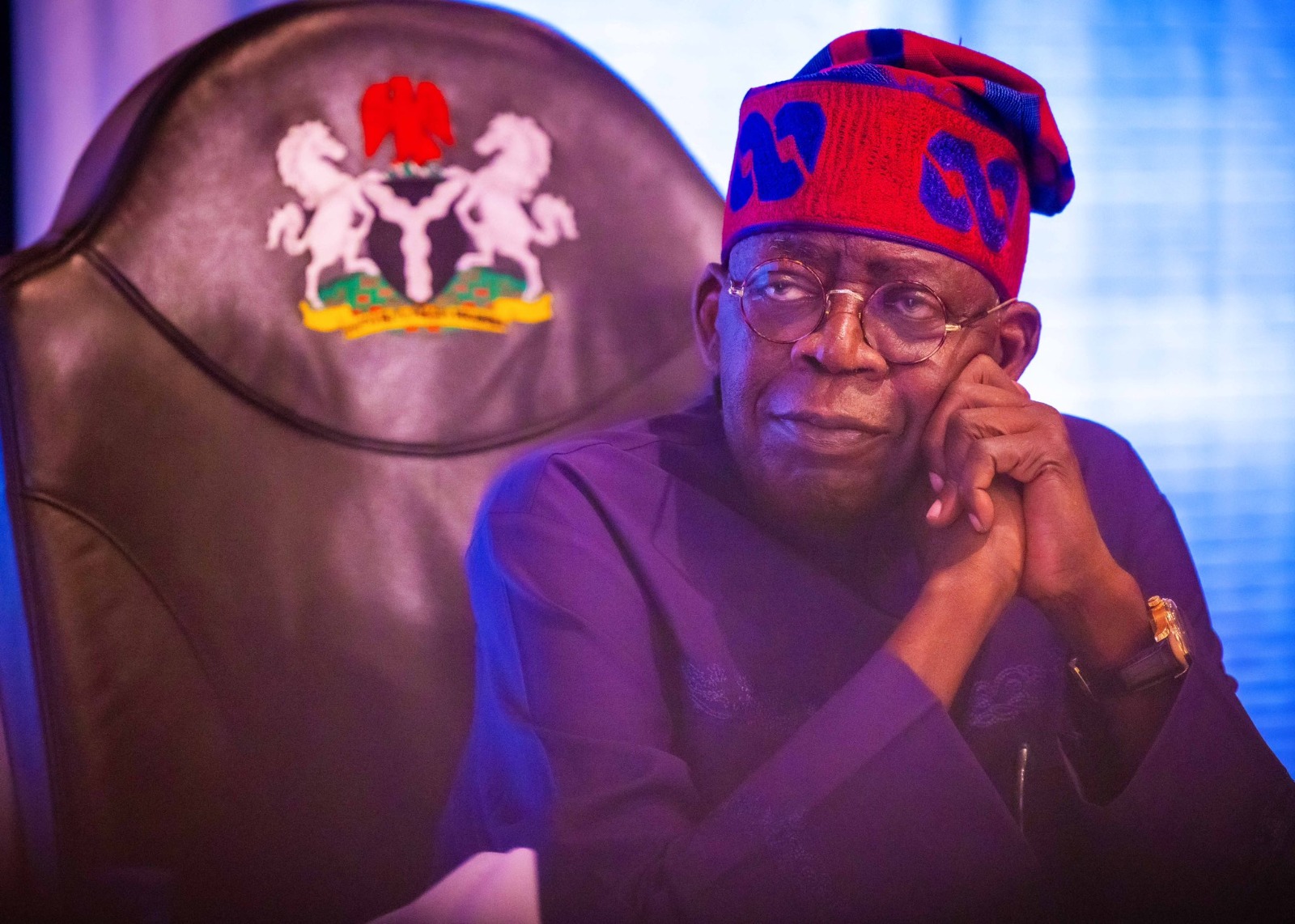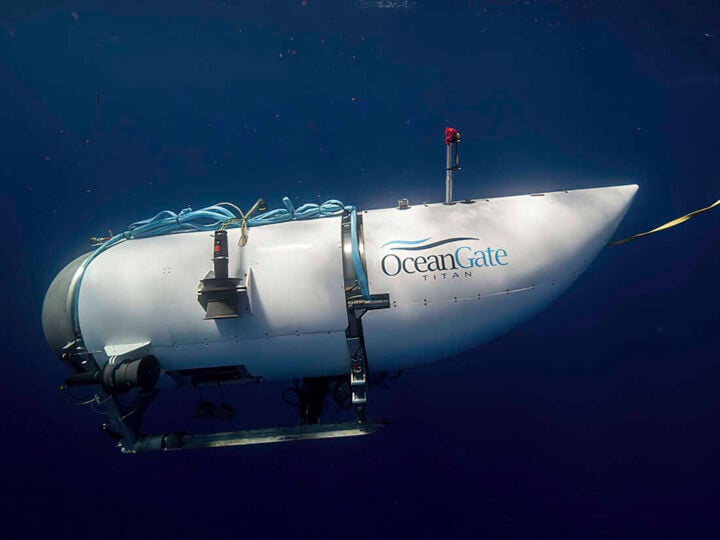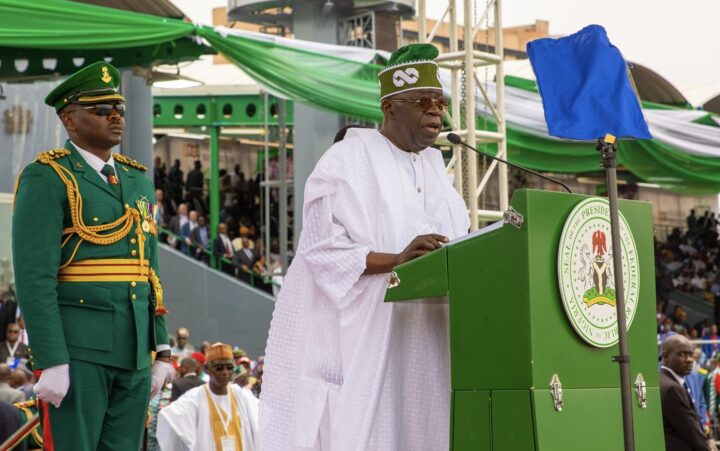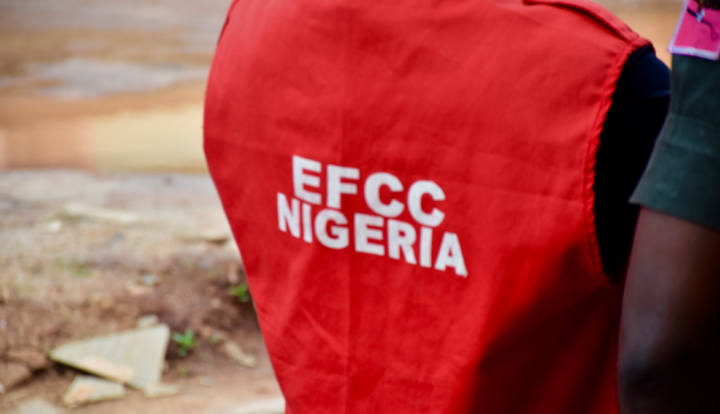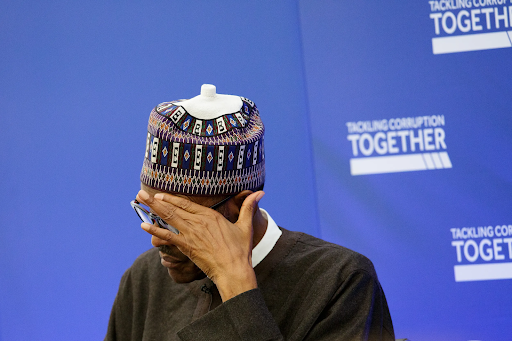At a ceremony on Wednesday, May 10, 2023, in Paris, France, Dr. Herbert Wigwe, Group CEO of Access Corporation and Pan-African investor, took over from pioneer President, Abdul Samad Rabiu, Chairman of BUA Group, as the President of the France-Nigeria Business Council (FNBC). Beyond the personal accolades that should go to him, Wigwe’s evolving tenure as President of the FNBC provides a strategic opportunity for some mutually beneficial economic and political outcomes for Nigeria, and France, when viewed from an economic diplomacy perspective.
The FNBC was inaugurated in June 2021 by French President Emmanuel Macron, as a private sector initiative to enhance mutually beneficial business relations between the two countries. The Council therefore provides a platform for sustainable and inclusive partnerships, collaboration and innovation between both countries. Its membership includes Mike Adenuga of Globacom and Conoil, Gilbert Chagoury of Chagoury Group, Aliko Dangote of Dangote Group, Tony Elumelu, Chairman UBA, Heirs Holdings and promoter of the Africapitalism economic philosophy, and current President Herbert Wigwe, as the Nigerian members of the council. Dassault, Danone, Axens, Ponticelli and TotalEnergies are some of the large French companies that are also members of the council.
Wigwe comes prepared for the role of an economic diplomat. In Nigeria, economic diplomacy was formally introduced by General Ike Nwachukwu, one of Nigeria’s finest infantry officer and gentleman, when he was Foreign Affairs Minister in the 1980s. It is a policy that emphasizes the need for economic opportunities to occupy primary place in Nigeria’s relationship with other countries.
In so doing, the private sector is accorded prime position in diplomatic conduct. Though Wigwe is a private sector operator, the inauguration of the FNBC by President Macron underscores its official relevance. Wigwe is currently Chief Executive Officer (CEO) of Access Holdings PLC, traded as Access Corporation. He was the Group Managing Director/CEO of Access Bank PLC, one of Nigeria’s top five banking institutions. The founder of Wigwe University, Isiokpo in Rivers State, Wigwe is Chairman of The Access Bank (UK) Ltd, Non-Executive Director of Nigerian Mortgage Refinance Company Plc; FMDQ OTC Securities Exchange; Shared Agents Network Expansion Facilities Ltd and Agri-Business/SME Enterprises Investment Scheme. He is also a member of the Governing Council of the Chartered Institute of Bankers of Nigeria.
Advertisement
For some more context on his suitability for the role of a high-level economic diplomat, Access Bank which Wigwe leads, currently operates in 18 countries, across four continents, including representative offices in China, India, Lebanon and United Arab Emirates (UAE). With more than 42 million customers, Access Bank Plc became the largest bank in Africa by customer base, and the largest Nigerian bank by assets. The bank has built a Chinese desk, working with China. Leveraging on that, a German desk was built, in working partnership with (German Investment and Development Corporation) DEG and the German government.
Within the context of Nigeria-France economic relations, Access Bank launched its French Desk in May 2023, with the objective to support corporate and private customers operating in Nigeria and France plus Francophonie. The presence of Chrysoula Zacharopoulou, the French Minister of State for Development, Francophonie and International Partnerships at the launch of the Desk, further underscores the diplomatic platform that Wigwe has. The Access Bank French Desk is a strategic platform which would serve as a vital link between Business France, PROPACO, Agence Française de Développement (AFD), and other multilateral organizations. The mutual economic objective of the Desk is best captured by Wigwe when he states that “The Business Desk will provide tailored support and guidance to French businesses operating in Nigeria, as well as Nigerian businesses seeking to expand their presence in France.” Access Group has also opened an operational banking subsidiary in Paris, France in May 2023. The French subsidiary will have the provision of trade finance between France and Francophone Africa as part of its objectives. Wigwe owns 8.13 percent of shares in Access Holdings, the parent company of Access Bank.
To further appreciate the role that Wigwe has to play as an economic diplomat, there is however the need for better comprehension of Nigeria-France relations, especially contemporary trade relations.
Advertisement
France established diplomatic relations with Nigeria in October 1, 1960 following Nigeria’s independence. Apart from 1961 when Nigeria broke diplomatic relations with France because France conducted an atomic test in the Sahara Desert, as well as suspicions on the role France played during the Nigerian Civil War of 1967 – 1970, Nigeria has largely enjoyed cordial relations with the European country over the years, with major French companies such as Peugeot, Elf, TotalEnergies and Air France having significant historical and contemporary economic presence in Nigeria. That all the countries Nigeria shares land borders with, namely Benin Republic, Niger Republic, and Cameroon are francophone, further underscores the strategic importance of Nigeria’s relationship with France.
In the last 26 years, the exports of Nigeria to France have increased at an annualized rate of 6.29 percent, from $680M in 1995 to $3.32B in 2021. During the same 26 years period, the exports of France to Nigeria have increased at an annualized rate of 2.7 percent, from $394M in 1995 to $788M in 2021. At face value, Nigeria has a more favourable balance of trade. However, the details of what each country exports shows that France and the French economy is better off, in its economic relations with Nigeria.
Using data for the year 2021, crude oil, petroleum oils and oil produced from bituminous minerals constituted 83.5 percent of Nigeria’s exports, with petroleum gasses and other hydrocarbon gasses making up 16.1 percent of Nigerian exports to France. Essentially, Nigeria’s exports are largely unprocessed petroleum and hydrocarbon products, with little value-addition and job creation for Nigeria.
Exports from France to Nigeria in contrast are made up of very diverse processed products and services, with value added to all, leading to industrial jobs in France. They include automatic data processing machines, machinery parts, wine, medicaments, milk and cream, cosmetic products, medical, surgical and dental instruments and appliances, enzymes, aircrafts and parts, electric accumulators, transmission shafts, spirits and liquors, forklifts and tractors, dishwashing machines, taps, electric cars and generators, telephone sets, among others.
Advertisement
In sum, unrefined crude oil accounted for most of Nigeria’s export to France, while French exports were diversified and processed products, which supports job creation and economic stability in France. This imbalanced economic relationship and trade pattern is what Wigwe is expected to lead the charge towards changing, so that a more mutually beneficial economic relationship can emerge between Nigeria and France.
Nigeria has GDP of US$441 billion and GDP per capita of $2,085, while France has GDP of US$2.94 trillion and GDP per capita of $43,519. The size of the French economy and average purchasing power therefore means that there is a lot of capacity within the French economy, for processed goods and service exports from Nigeria.
Altering the pattern of trade relations between both countries is not envisaged to be an easy task, but the ability demonstrated by Wigwe and Access Group in its international expansion, including into France, means that he has the capacity and drive to lead this economic charge. The Access Bank France Desk is a platform that should therefore be utilized in a strategic way, and for promotion of a more balanced trade patterns.
Successful execution of such economic plans will require prioritization of low-hanging fruits. In the aviation sector, Air France has been flying to Lagos, Abuja and Port Harcourt airports for decades, and there is currently no reciprocity from Nigerian airlines. Air Peace, Nigeria’s largest aviation company is well positioned and qualified to operate flights to France, as the airline currently operates direct flights to China, Israel, India, UAE among other international destinations. Wigwe can support the harnessing of bilateral air service openings for Air Peace, which will enable the Nigerian airline fly to Paris-Charles de Gaulle, Nice and Lyon airports. That way, he can facilitate a Nigerian business providing value-added services to France, as well as expand economic and human relations. The more expanded economic relations and trade integration are, the closer the countries become- which is the essence of diplomacy.
Advertisement
Wigwe is also qualified to provide hands-on mentoring and business support to Nigerian manufacturers with export potentials. If he could lead the international expansion of Access Bank despite the challenges with Nigeria’s business environment, then he can mentor, support and invest in Nigerian business organisations to surmount the challenging economic environment, and begin to export manufactured products and services to France. There is no doubt that that Nigerian manufacturers and businesses desirous of export markets will be willing to ‘follow who know road’, as we say in local parlance.
The economic spin-offs that will occur if Nigerian businesses begin to export processed goods and services to France, is the wider export to the other 26 European Union (EU) countries. France is a leading EU country, and many products and services share common standards across the 27 EU countries. EU has a GDP of $16.6 trillion, population of 447 million people and GDP per capita of $34,000. This makes it one of the most lucrative markets in the world.
Advertisement
These envisaged changes in bilateral economic relations should be mutually beneficial to France, as a deepened economic relationship beyond hydrocarbon resources from Nigeria, is ultimately good for France, due to alternatives and new products for the French economy. More affordable alternative products and services from Nigeria can increase real purchasing power, as well as more disposable income in France.
And with economic leverage, comes political leverage. The multilateral mindset that has led to the international expansion of Access Bank, can be deployed to resolving some of Nigeria’s social and political problems. As earlier mentioned, all the countries that Nigeria shares land borders with are francophone, and France retains considerable influence in these countries. Wigwe can therefore leverage his influence with France, to secure commitments for the resolution of issues such as cross-border banditry and environmental protection.
Advertisement
On the security front, Wigwe can contribute to ensure that the commitments that France made in support of the fight against terrorism in the Lake Chad region at the Paris Summit of May 2014, and other related commitments, are implemented. This will make Nigeria and surrounding francophone countries more secure, thereby making Nigeria more attractive for investment, and leading to a reduction in the insurance premium for foreign investment into Nigeria. On the environmental front, there is the Great Green Wall (GGW) project, designed to halt desertification in the Sahel region of Africa. 11 states out of the 36 federating states in Nigeria which are Jigawa, Kano, Katsina, Kebbi, Sokoto, Zamfara, Adamawa, Bauchi, Borno, Gombe, and Yobe are categorized as frontline states. This means that about a third of Nigeria’s land area has severe environmental concerns. France can be encouraged to provide more support to Niger Republic and Chad Republic, to ensure that they meet their GGW commitments, and halt the spread of the desert.
The recently licensed Wigwe University at Isiokpo, Rivers state, provides further opportunities for strategic engagement between Nigeria and France. As the Nigeria University Commission (NUC) is increasingly providing Nigerian universities opportunities for more specialisation, Wigwe University should have research specialty in Nigeria-France studies. TotalEnergies which has operated in the delta area since 1962, when Total Nigeria began crude oil production in the country, can collaborate with the university in renewable energy and petroleum studies.
Advertisement
In his own words at the foundation laying ceremony of the university in May 2023, “One unique aspect that will be of Wigwe University is its emphasis on international exposure.” That international exposure will have to be strategic, for optimal outcomes. A bit more focus on academic and industrial international partnerships with France will be a good place to start. These strategic international collaborations should also be extended to the faculty recruitment of the school, as the university plans to have Nigerians make up 60 percent of its faculty, while 40 percent of the faculty will be internationally recruited. Students of the institution would also spend one year of their academic period on exchange programme abroad, in order for them to gain some international exposure. Hopefully, France will be a leading destination.
We dare say that excuses are not expected from Herbert Wigwe. The economic and political performance indicators, or ‘targets’, as they are known in the financial industry where he operates, which are enhancing export of Nigerian manufactured products and processed services to France; improved security in the Lake Chad region with French involvement; and completion of the Nigeria-Chad-Niger section of the Great Green Wall; are what his performance as an economic diplomat will be measured by.
Nigeria has the uncomplimentary record of being the current poverty capital of the world. The country therefore needs to task all people of means, and harness its resources towards sustainable socioeconomic development. Just as the United States did in its earlier years, where the likes of Cornelius Vanderbilt, John D. Rockefeller, Andrew Carnegie, J. P. Morgan, and Henry Ford contributed immensely as private businessmen to the development of the economic superpower that is now the United States of America, a lot is expected from Nigerians of means, in harnessing available resources for the development of Nigeria. For Herbert Wigwe, a new chapter opens in his expanding international commitments, this time, a chapter in active economic diplomacy. Such expansions can be leveraged for wider social and international development in the areas of enhanced economic competitiveness, national security and environmental protection in Nigeria. As he has excelled in previous responsibilities, the world waits to see how Wigwe manages this new chapter in Nigeria-France relations, between Africa’s largest economy and populous country, and France.
Dr. Uwanaka writes from African University of Science and Technology, Abuja. [email protected]
Views expressed by contributors are strictly personal and not of TheCable.
Add a comment
